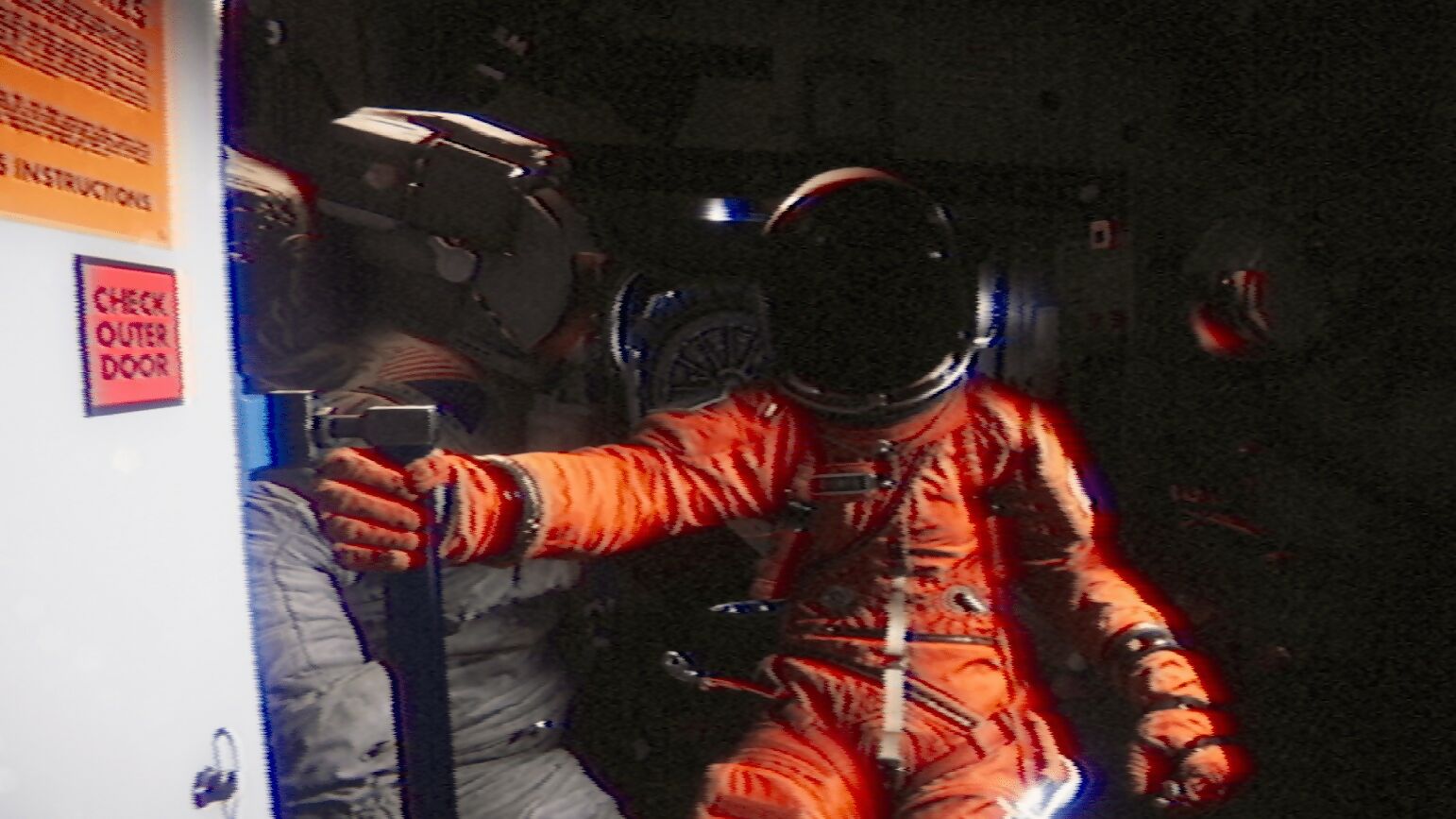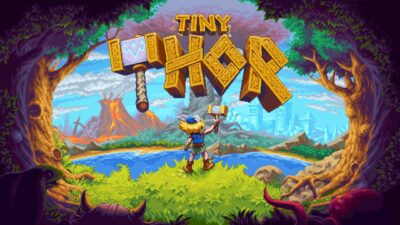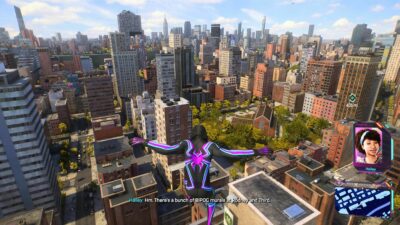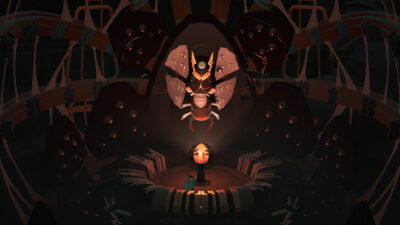
Observation is a gripping sci-fi puzzler anchored by a great central performance from Kezia Burrows. Here’s our review…
Observation is both captivating in its translation of the tense silences and terrifying peaks of horror cinema, and a clear parable on how unethical it is to force sentient AI to carry out repetitive, obtuse busywork.
I came away from my time awed at how it balanced incisive, personal claustrophobia with expansive cosmic horror. I also came away feeling a bit sorry for my operating system, and only partly in the ways I think the game wanted me to.
Observation puts you in the role of SAM. That’s Systems Administration and Management, by the way – the onboard computer of the space station, Observation. The game opens on the spinning interior of the station’s European arm, to floating debris and the crackling, panicked voice of Dr. Emma Fisher. Clearly, something’s gone badly wrong.
It’s up to you to, uh, administer and manage some systems, then. After all, that’s what they built you for.
To call what you’ll be doing for the next five or so hours ‘puzzles’ is less accurate than to call them ‘tasks’. Observation has a specific set of things it wants you to do in a specific order to advance the plot. A few of these require you to use your brain, but mostly you’ll just be using your ears, your eyes, and your thumbs.
This sounds a bit dull, right? It’s not great, admittedly, but the beauty of Observation is how UI, sound design, and story work together so that even performing mundane tasks can make you feel every bit the helpful, advanced AI companion you’re supposed to be.
It’s less about the complexity of navigating these sleek science-fiction interfaces, more that there is so much detail and care put into both the visual design and interconnectivity of SAM’s many systems that the interior of the station feels plausible and tangible. When that plausibility and tactility is used to terrify, Observation is at its strongest.
Then there’s Dr. Emma Fisher (voiced by Kezia Burrows), who carries the entire game. Observation’s understated humour makes it easier than you’d expect to care about the fate of an AI, but this is Emma’s story above all, and I felt her every panicked inhalation and relieved sigh as if it were my own.
There’s a naturalistic imperfectness to Emma’s dialogue and performance. The result of her speaking as much to herself as she is to SAM, oscillating between allowing herself to forget and realising again that, technically, she’s completely alone.
If Observation has the visual flair and tight pacing of a Hollywood flick, its focus on the personal makes it feel firmly like a British indie film. It’s fantastical without feeling artificial or contrived, even in details as seemingly small as remembering that characters in peril don’t always speak in complete sentences.
As the situation deteriorates, there’s a sense that SAM becomes emotional, as well as technical, support. It’s believable, human, and completely captivating.
Here’s something crucial, though: the dangerous situations Emma finds herself in are all dictated by the plot. There are no fail states, effectively, or none I encountered. This is where the cinematic influence starts to overshadow Observation’s interactivity, as it’s sometimes difficult to buy into the importance of opening an airlock quickly when you know you can comfortably leave everything suspended in zero-G to go and make a consequence-free sandwich.
If the puzzles are neither all that interesting or all that tense, though, there is something ominously pleasing about dutifully carrying them out and being told ‘good job, SAM’ over and over in Dr. Fisher’s gentle South Walian lilt.
I got the sense that Observation was making a commentary on my self-assumed autonomy as a player here. The game never golf-clubs you in the face with it the same way BioShock did, but there are things that made me question the act of playing games. To think the ways in which we derive enjoyment from repetitive tasks, and how there’s something unquestionably… robotic about the whole thing.
There are plenty of other questions Observation provokes, too. What’s the nature of consciousness? How is our relationship to film affected if we view the camera lens as a conscious participant, rather than an impartial observer? Why is it so much fun to annoy doomed astronauts by repeatedly pretending you didn’t understand their requests?
Honestly, this last one is great, especially as there’s extra dialogue recorded for when Emma gets exasperated over you failing to remember very simple commands. Again, I’m beginning to understand where my desktop is coming from.
You’ve probably noticed from the screens, but safe to say Observation is, pun intended, a real looker. Photorealism isn’t something I feel all games should strive for, but between the artful glitches and static and its environments, Observation is what all those adorably terrible FMV games from the nineties should have been.
The production values are (kill me) stellar across the board. The notable exception being the – otherwise excellent – motion capture on characters’ mouths, which tend to flap about randomly like the tentacles of an eldritch horror far more terrifying than anything in the actual game.
Ultimately, Observation is something you want to share with a friend who doesn’t play games, just to demonstrate how incredibly absorbing the medium can be. But then, halfway through thinking about how exciting it all is, you’ll start to recall all the repetitive tasks you have to complete along the way.
Observation’s still worthwhile, and your friend’s still going to love it, but the thought’s enough to give you pause.
Highlight
Kezia Burrows’ understated, naturalistic, and utterly convincing performance as Dr. Emma Fisher gives Observation its emotional anchor. It’s both a risk and great bit of unconventional storytelling to centre a game around a protagonist you don’t actually play as, and Observation’s story does some interesting things with this disconnect.
Verdict: 76%
In drawing influence from cinema, Observation often forgets to make the most of its interactivity. This is the most gripping space admin job you’re likely to hold this year, but it’s still an admin job.
Info
Genre: Puzzle / Narrative
Format: PS4 (tested) / Windows
Developer: No Code
Publisher: Devolver Digital
Price: £19.99
Release: Out now





